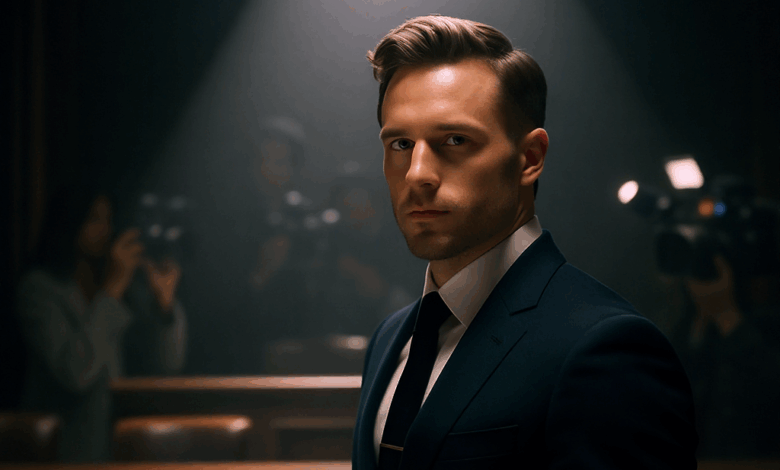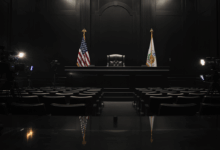Celebrity Influence on Business Ethics in Civil Litigation – A Nuanced Perspective

The Double-Edged Sword of Celebrity Influence on Business Ethics
The Power and Pitfalls of Celebrity Visibility
Celebrities undeniably wield immense influence over public perception, which extends deeply into the realm of civil litigation. This influence can be a double-edged sword — on one hand, it brings heightened scrutiny to business ethics, forcing companies to uphold higher standards; on the other, it risks distorting legal processes through media sensationalism.
- Celebrity legal battles, such as Blake Lively and Justin Baldoni’s case, highlight how public opinion can overshadow judicial proceedings, making ethical business conduct both more visible and more vulnerable to misinterpretation.
- The amplification effect of social media creates a dynamic where narratives often form before facts emerge, pressuring businesses and attorneys to respond quickly, sometimes at the expense of measured ethical judgment.
As someone who values integrity in both legal practice and corporate responsibility, I find this intersection fascinating and urgent. It challenges us to rethink how ethics are maintained when the spotlight is unrelenting, and reputations can be made or broken in real time.
Ethical Challenges for Attorneys and Businesses
Legal professionals representing high-profile clients face unique dilemmas: balancing aggressive defense strategies with ethical standards, managing client confidentiality amid media scrutiny, and advising clients on social media behavior.
- Attorneys like Michael Avenatti have shown how aggressive public posturing can backfire, raising questions about where to draw ethical lines.
- Businesses associated with celebrities must develop comprehensive crisis management and ethical compliance frameworks to mitigate reputational risks.
This complexity demands not only adherence to existing ethical codes but also an evolution of those standards to fit the digital age’s realities. It matters because the integrity of the legal process and corporate reputation hinge on these adaptations.
Navigating the Ethical Quagmire Balancing Transparency and Integrity
Recognizing Legitimate Concerns and Counterarguments
Some argue that media attention and celebrity involvement democratize information, empowering the public and enhancing accountability in business and legal affairs. They contend that transparency, even if messy, serves justice by exposing unethical behavior.
While transparency is crucial, the conflation of legal facts with media narratives often leads to trial by public opinion, undermining due process and ethical standards.
Recognizing this perspective, I acknowledge the value in heightened scrutiny. Yet, I maintain that without robust ethical frameworks and strategic communication, the risks of misinformation and reputational damage outweigh the benefits.
The Path Forward: Integrating Ethics, Strategy, and Public Engagement
To navigate this terrain:
- Attorneys must champion confidentiality and ethical conduct while skillfully managing media relations and advising clients on prudent social media use.
- Businesses should proactively develop ethical guidelines and crisis management plans, fostering transparency without compromising integrity.
- Legal and PR strategies need integration, ensuring that public communications complement legal objectives rather than conflict with them.
These steps are actionable and necessary for all stakeholders who wish to uphold ethics in an era where celebrity influence is inescapable.
Ultimately, embracing this complexity with humility and vigilance can transform celebrity influence from a challenge into an opportunity—a catalyst for higher ethical standards and more thoughtful engagement between the legal system, businesses, and the public.
I urge readers—whether legal professionals, business leaders, or engaged citizens—to reflect on how celebrity-driven narratives shape their perceptions of justice and ethics. By fostering informed and balanced discourse, we can collectively safeguard both integrity and fairness in civil litigation’s evolving landscape.
The Role of Celebrity Influence in Shaping Legal Norms and Ethical Expectations
The Normative Power of Celebrity as Social Models
Celebrities function as de facto cultural arbiters, influencing not only public opinion but also the implicit legal and ethical norms that society expects from businesses and legal practitioners. Their visibility magnifies their capacity to set behavioral standards, thereby indirectly shaping the evolution of business ethics in civil litigation contexts.
Case Study: Celebrity Endorsements Leading to Policy Shifts
For example, when high-profile figures publicly condemn unethical corporate behavior during litigation, it often precipitates internal policy reviews and reforms within companies eager to maintain favorable public standing. This normative influence extends beyond rhetoric, compelling businesses to institutionalize ethical standards they might have previously neglected.
Counterpoint: Risks of Overreliance on Celebrity-Driven Norms
However, the normative power of celebrities is a double-edged sword. Overreliance on celebrity voices risks marginalizing expert legal and ethical discourse, potentially leading to skewed or populist-driven standards that may not align with established jurisprudence or ethical frameworks.
While celebrities can spotlight critical issues, unchecked influence without critical scrutiny can result in the erosion of nuanced ethical reasoning, favoring sensationalism over substance.
Philosophical Foundations The Social Contract and Public Trust
From a social contract perspective, the public’s trust in legal and corporate institutions depends on transparent and principled ethical conduct. Celebrity influence can either reinforce this trust by holding entities accountable or undermine it if their involvement fosters misinformation or excessive cynicism toward the legal process.
The Dynamics of Media-Driven Ethics Versus Institutional Ethical Frameworks
Media as a Catalyst for Ethical Awareness
Media coverage propelled by celebrity involvement can accelerate public awareness of ethical breaches, creating pressure for swift institutional responses. This dynamic serves as a form of societal check on business conduct that traditional regulatory mechanisms may lack in speed or reach.
Evidence: Impact of Social Media Campaigns on Corporate Accountability
Research indicates that viral social media campaigns linked to celebrity legal disputes often correlate with measurable shifts in corporate behavior, including increased transparency and revisiting compliance protocols. For instance, following the high-profile defamation cases, corporations have enhanced their internal ethics training and reporting mechanisms.
Counterarguments: Ethical Relativism and Media Sensationalism
Conversely, media-driven ethics can foster relativism, where ethical standards fluctuate with public mood rather than consistent principles. Sensationalism may prioritize scandal over truth, pressuring companies and attorneys to prioritize image management over substantive ethical improvements.
The challenge lies in balancing the democratizing force of media scrutiny with the need for stable, principled ethical governance.
Real-World Implications: Integrating Media Strategy with Ethical Leadership
Practical applications demand that businesses and legal teams cultivate media literacy and ethical leadership concurrently. This involves training leaders to engage with media constructively without compromising foundational ethical commitments, ensuring that public engagement serves as a complement—not a substitute—for genuine ethical accountability.
Ethical Pluralism and the Complexity of Celebrity Impact on Litigation Integrity
Embracing Ethical Pluralism in Celebrity-Influenced Legal Contexts
The intersection of celebrity influence, business ethics, and civil litigation invites an ethical pluralism approach—acknowledging multiple legitimate ethical frameworks (deontological, consequentialist, virtue ethics) that stakeholders might invoke depending on context.
Example: Divergent Ethical Priorities Between Attorneys and Public
Attorneys often prioritize confidentiality and due process (deontological ethics), while the public influenced by celebrity narratives may emphasize transparency and outcome fairness (consequentialism). Recognizing these differing ethical priorities is essential to managing expectations and fostering mutual respect.
Counterpoint Navigating Ethical Conflicts Without Oversimplification
Simplistic resolutions or imposing a single ethical lens risks alienating stakeholders and undermining the integrity of both legal and business processes. Instead, ethical frameworks must be dynamic and dialogical, accommodating competing values while striving for coherence.
This complexity challenges all parties to cultivate ethical literacy and humility, resisting the temptation to reduce multifaceted dilemmas to binary judgments.
Long-Term Perspective Building Resilient Institutions Amid Celebrity Influence
The ultimate goal is to develop resilient legal and corporate institutions capable of withstanding the volatility introduced by celebrity-driven narratives. This entails embedding robust ethical education, transparent governance, and stakeholder engagement mechanisms that collectively uphold the integrity of civil litigation and business ethics over time.
These extended reflections underscore the nuanced and multifaceted impact of celebrity influence on business ethics within civil litigation. By engaging seriously with counterarguments, philosophical underpinnings, and real-world complexities, stakeholders can better navigate this evolving landscape with integrity and thoughtful judgment.

Embracing the Complexity A Call for Vigilant Ethical Stewardship
Synthesizing Insights into a Unified Ethical Vision
The profound influence celebrities wield within civil litigation and business ethics is undeniable—offering both unprecedented opportunities for accountability and significant risks of distortion. This duality challenges us to embrace ethical pluralism and strategic transparency while steadfastly upholding core principles of integrity and due process. For me, this intersection is more than theoretical; it strikes at the heart of justice and public trust, compelling a vigilant ethical stewardship by all stakeholders—attorneys, businesses, media, and citizens alike.
Engaging Together: Your Role in Shaping Ethical Narratives
Meaningful Actions to Foster Balanced Discourse and Integrity
I invite you, whether a legal professional, business leader, or engaged citizen, to actively participate in cultivating a culture where celebrity influence elevates rather than undermines ethical standards. You can:
- Advocate for and practice thoughtful media literacy, distinguishing fact from sensationalism.
- Support and demand ethical compliance and crisis management frameworks within organizations.
- Engage in dialogues that respect diverse ethical perspectives while emphasizing fairness and transparency.
- Use social media responsibly, promoting informed narratives that uphold justice without rushing to judgment.
Together, these actions create a foundation for a more resilient and principled legal and business environment.
Envisioning a Future of Integrity and Collective Accountability
A Shared Vision for Ethical Evolution Amid Celebrity Influence
Imagine a future where the spotlight of celebrity not only reveals corporate missteps but also inspires transformative ethical reforms, where legal proceedings are respected as arenas of truth rather than spectacle, and where public trust is strengthened through transparent, principled engagement. This is achievable if we commit to ongoing education, collaborative problem-solving, and humble openness to complexity.
“By embracing celebrity influence with ethical maturity and strategic insight, we can transform potential pitfalls into powerful catalysts for justice and integrity, ensuring that both business ethics and civil litigation flourish in a balanced and enlightened society.”
Let us move forward with courage and conviction, mindful that each voice and action contributes to shaping a fairer, more ethical world.





